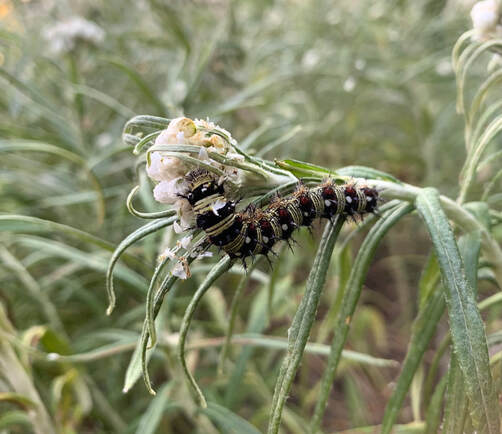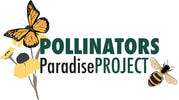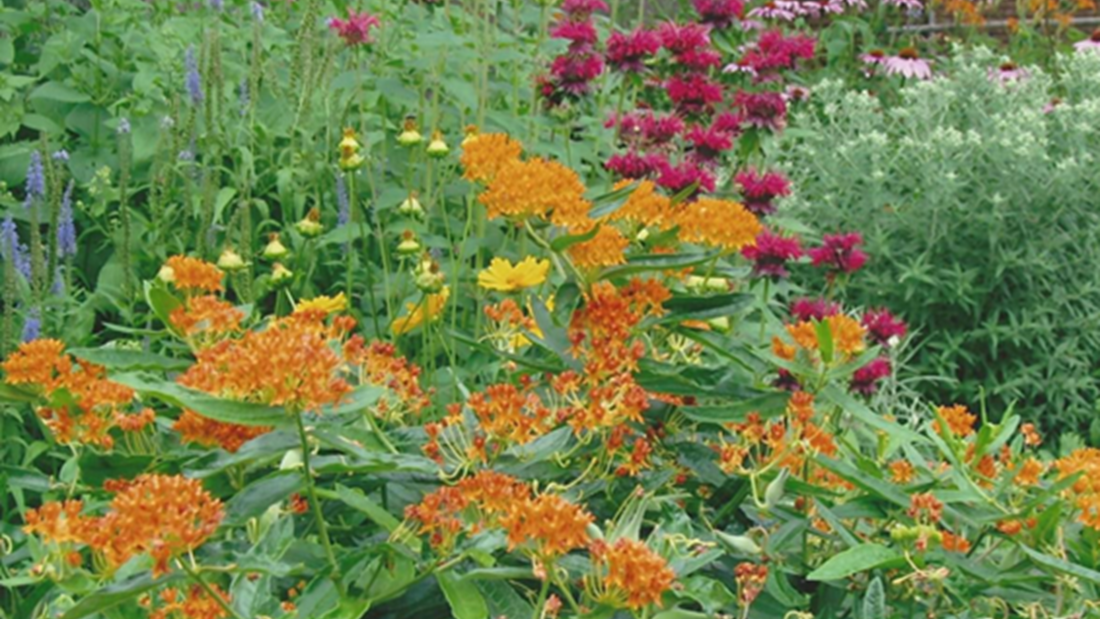|
With Barb McKean, 2020 Hamilton Monarch Awards Recipient. During spring migration a couple of years ago, an unusual bird showed up in Barb McKean’s garden. A Brown Thrasher rustled about in the remains of last year’s leaves covering the flower beds, popping up to gulp down an early bug, then getting back to work foraging through the leaves some more. It stayed for three days. Barb's friend said the very same bird had dropped by her yard for a couple of days as well. And do you know why? Their yards were the only two naturalized gardens on their street. It goes to show: if you build it, they will come. Barb, who is Head of Education at the Royal Botanical Gardens (RBG) has compiled an inventory list of her west mountain property that encompasses over 170 species and varieties of plants. How long has this habitat-creating maverick been at it?
2 Comments
Guest post by Angelique Mori. Published in NANPS 2020 Fall edition of Blazing Star.  American lady larvae on Everlasting American lady larvae on Everlasting .As human-dominated landscapes relentlessly diminish ecosystems crucial for our own survival, it’s wise to consider the words of writer/ecologist Doug Tallamy, “Garden as if life depends on it.” Native plants support not only human life but the lives and reproductive capacity of countless animals. They are foundational to the inter-connected systems and associations with fauna that have evolved over millennia; remove pieces and the complex system risks collapse. When we plant native flora in our yards we not only restore habitat, but a whole world of wonder emerges. Sara Stein’s Noah’s Garden (1993) serves as an inspiration to dedicated habitat gardening. Each individual who contributes to this effort promotes awareness, applying eco-conscious practices in their own life. This has a ripple effect in each community. Passers-by may feel inspired, seeing an urban native plant oasis lush with life. The spark created by your garden may lead to curiosity, learning, action and the sharing of knowledge. Among the wild, unexpected delights of a native plant garden are the insects. People may scoff at the foolishness of providing nourishment for what they perceive to be pests. Yet these tiny protein packs invite the creatures that eat them! Frogs, salamanders, snakes, birds, bats and others relish the bountiful insect buffet! Consequently, it’s imperative to be pesticide free. Moreover, messy garden areas invite magical evenings dotted with the twinkling dance of fireflies. Visualize the extraordinary emergence of monarch butterflies, whose exclusive host plant is milkweed (Asclepias spp.), or the doily-like foliage created by nursery-constructing leaf cutter bees. Every spring, the redbud tree (Cercis canadensis) in my yard takes on a lacy effect as a result of their harvesting! |
Archives
December 2023
Categories |
|
|
Butterflyway Hamilton: www.facebook.com/butterflywayhamilton/
Environment Hamilton: https://www.environmenthamilton.org/ Hamilton Naturalists' Club: https://hamiltonnature.org/ |


 RSS Feed
RSS Feed